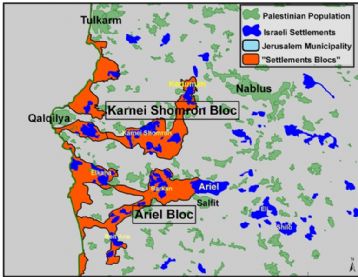May 2008 Archives

There is no reason to be especially optimistic regarding the official resumption of negotiations between Israel and Syria regarding the disposition of the Golan Heights. We have, after all, been here before, down to just a few nettlesome issues that at the time proved impossible to resolve. True, as Churchill famously said (and as Obama seconds), "To jaw-jaw is always better than to war-war." But if we are to believe the freshet of reactive statements in the wake of the formal announcement of the talks, mediated by Turkey, what is happening now goes well beyond "jawing." Voices from both nations have made it clear that both know exactly what the "concessions" that are being demanded of them are. Knowing those concessions and nonetheless being prepared to announce the negotiations suggests either desperation or maturity.


Perhaps it was because of the heightened awareness of Israel during the week of its 60th anniversary celebration. Twice in one week?
Last night, at a reception, a friend approached me. "I'm having a very hard time with Israel," she said out of nowhere. "Ben [her husband] says it's because I can't let go of the myth and I can't accept the reality." "Oh," I replied, "the old Yerushalayim d'malah versus Yerushalayim d'mata problem, eh?" (For those readers less Jewishly literate than she, our tradition posits two Jerusalems, the upper or heavenly Jerusalem and the lower or earthly Jerusalem.)
She is assuredly not alone. As Israel's reality becomes more and more difficult to ignore, those raised on the myth have some serious adjusting to do - or a serious internal conflict to feel.
While I work on a rather longer piece that tries to deal with the post-Zionist position put forward with real passion last evening at a conference of Jewish social justice activists - and with the discomfort of many in the gathering with any talk at all of Israel - a quick question.
Here we sit as Ehud Olmert apparently faces indictment on charges of corruption. By now, indictments of senior Israeli officials have lost their shock value. Shlomo Benizri, a member of Knesset (Shas) who was once Minister of Health and then Minister of Labor and Social Welfare (and once attributed two earthquakes to Israel's tolerant attitude towards homosexuality) has been sentenced to 18 months in jail for receiving bribes, breach of faith, conspiracy to commit a crime and obstruction of justice and moral turpitude. Tzachi Hanegbi (Kadima), currently chair of the Knesset Committee on Security and Foreign Affairs and formerly Minister of Health, of Justice, of Environment and of Public Security, is under indictment for having made 69 political appointments to the Environment Ministry, at least 51 of which were members or relatives of members of Likud's central committee. He's accused of fraud and breach of trust and, separately, of election fraud, giving false testimony, taking a false oath and attempting to exert unlawful influence on a voter. (The 33-page indictment includes a list of 321 witnesses for the prosecution.) Former President Katsav has chosen to reject the plea bargain he reached with the A.G. months ago, in which he confessed to sexual harassment, forcible indecent assault and harassing a witness; now it appears that the original charge of rape will be reinstated. Avraham Hirchsohn, former Minister of Treasury (and also of Tourism), will stand trial for fraud, theft, falsifying corporate documents, breach of trust and money laundering, in connection with his alleged theft of some four million shekels from the labor union he headed.
And all those are merely the tip of a very large and very dirty iceberg.
Now, on the one hand, Israel ranks 30th from the top of a list of 179 countries on a scale of corruption - a scale that goes from least corrupt (the very top) to most corrupt. It scores 6.1 on a 10 point scale, and 5.0 is regarded as the cut-off point between "acceptable" levels of corruption and unacceptable levels. By that accounting, things are not as bad as they seem.
But quite plainly, they are not very good.
I wonder whether there is, perhaps, a Jewish propensity for "beating the system." For a very long time, we were essentially required to beat the system in order to stay alive. We had to cut corners, cheat, lie, get away with things. The systems where we lived were oppressive, and we developed the wits to endure. Might there not have been a near-genetic selection for the live-enhancing ability to make it in spite of the oppression?
Has anyone done anything like systematic work on this question? Is the question simply absurd, meaning there is no such distinctive propensity?
Your thoughts?